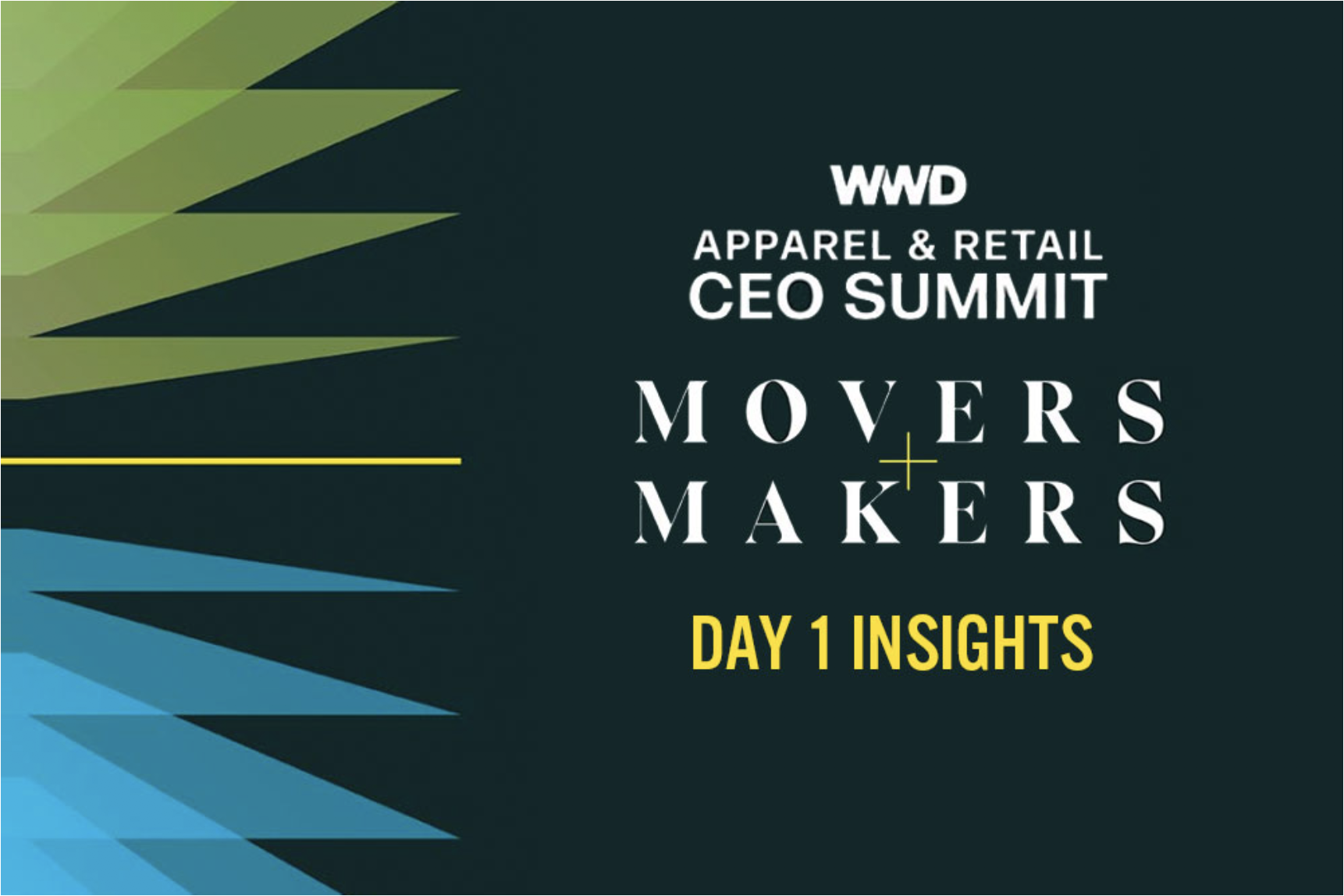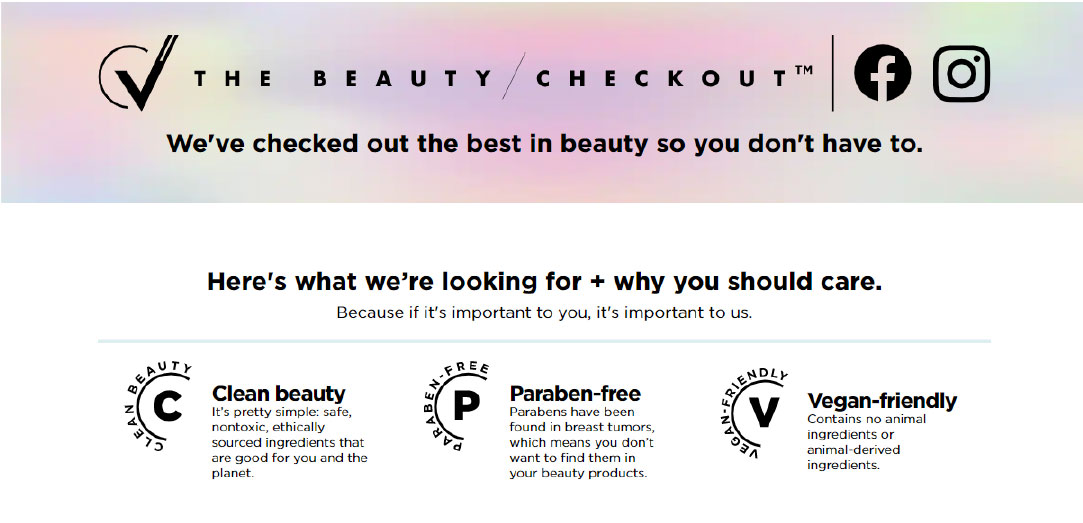
DIpil Das
Listen to the audio report:
The Coresight Research team is attending the 14th annual Women’s Wear Daily Apparel and Retail CEO Summit, which runs October 29-30 this year. The conference brings together over 200 global retail and apparel executives speaking on the transformation of the retail industry, shifts in consumer behavior and brand collaborations that are helping retailers keep up with fast-changing consumer expectations.
This year’s theme, Movers + Makers, highlights the people powering the fashion business through continuing efforts in innovation.
These are the top six insights from the first day:
More consumers will seek out environmentally and socially engaged brands.
 Left: Kerby Jean-Raymond, fashion designer and Founder of the menswear label Pyer Moss, is sharing insights on brand acceleration; Right: Pyer Moss on New York Fashion Week
Left: Kerby Jean-Raymond, fashion designer and Founder of the menswear label Pyer Moss, is sharing insights on brand acceleration; Right: Pyer Moss on New York Fashion Week
Source: Coresight Research/Getty Images[/caption] Campaign for the Beauty Checkout
Campaign for the Beauty Checkout
Source: Kohl’s [/caption] Shoppers will increasingly expect “Smart Retail” interactions.
- Emanuel “Manny” Chirico, Chairman and CEO of PVH, kicked off the event, talking about the importance of defining unique corporate purpose. He pointed out that companies need to capture the hearts of consumers to build a more emotional connection to the brand. The goal goes beyond corporate financial results, and includes a sustainable and responsible future.
- Chirico cited as one examples that CVS Health stopped selling tobacco products in all of its stores in 2014 because it conflicted with the purpose of helping people on a path to better health. His advice for CEOs 2020 and beyond: embrace the balancing act!
- Mike Smith, President and COO of Stitch Fix, discussed three key topics: brand personalization, the link between data and product, and how algorithms and data science cut inventory costs.
- Smith added that Stitch Fix not only gets feedback data from clients, it also receives rich upfront data on both clothing and clients: Buyers and designers capture dimension and style details, and clients fill out a profile upon signup that’s calibrated to get the most useful data with the least client effort.
- From client experience, to warehouse assignment, then to intelligent machines, AI-driven algorithms have been crucial not only in everyday operations but also to improve efficiency. The Stitch Fix algorithm is used to populate a calendar from which clients sign up and fill out a Style Profile, and then select delivery dates. AI automatically calculates the costs for each warehouse and the intelligent machines perform a variety of algorithms to produce items based on client preferences.
- Kerby Jean-Raymond, fashion designer and Founder of the menswear label Pyer Moss, believes that brands need to think bigger and more creatively when it comes to distribution models, product development and collaboration.
- For example, in 2018, Pyer Moss launched its highly anticipated collection in partnership with Reebok named “Reebok by Pyer Moss” as part of a newly announced partnership with the footwear giant.
 Left: Kerby Jean-Raymond, fashion designer and Founder of the menswear label Pyer Moss, is sharing insights on brand acceleration; Right: Pyer Moss on New York Fashion Week
Left: Kerby Jean-Raymond, fashion designer and Founder of the menswear label Pyer Moss, is sharing insights on brand acceleration; Right: Pyer Moss on New York Fashion Week Source: Coresight Research/Getty Images[/caption]
- Kohl’s launched the Beauty Checkout in October 2019, bringing emerging beauty to Kohl’s customers. In partnership with Facebook, the Beauty Checkout will offer customers a selection of curated, on-trend products in makeup, skincare and more, allowing customers to “check out” the latest in beauty in a fun, exciting brand story experience.
 Campaign for the Beauty Checkout
Campaign for the Beauty Checkout Source: Kohl’s [/caption] Shoppers will increasingly expect “Smart Retail” interactions.
- Karin Tracy, Head of Fashion at Facebook, stressed the importance of connection and communication via storytelling. As we head into the next decade with mobile commerce taking a larger proportion of the business world, it is vital for brands to insert themselves into the cultural Zeitgeist.
- Fit-for-purpose marketing and creative mobile advertisements are important to sell a big dream on a small screen. Everyone is both audience and distribution partner.
- Digitally native direct-to-consumer (DTC) brands are focused on brand design, branding and digital ads. And now they are interested in solutions that make their products cheaper, better and more efficient.
- Technology will continue to strip friction from brick-and-mortar retail, from store opening, to smooth check-out, to customer service.
- Online brands are moving into the physical world, making the omnichannel dream a reality. For instance, M.Gemi, an Italian handcrafted shoe brand, is opening more physical stores as it also creates excitement around limited quantities.
- We expect more digital natives to open physical stores, and for cities to be the destination of choice – with both online retailers and old-school brick and mortar established names investing in more exciting urban flagships.
- Alessandro Bogliolo, CEO of Tiffany & Co, said Tiffany was always about inclusivity and looking ahead. He believes inclusivity is much more important than exclusivity.
- Inclusivity in branding lets all customers see themselves in that brand: From marketing campaigns showcasing a diverse consumer base to physical representations of diversity in-store or online, brands need to transform in step with society to maintain relevance in the marketplace.